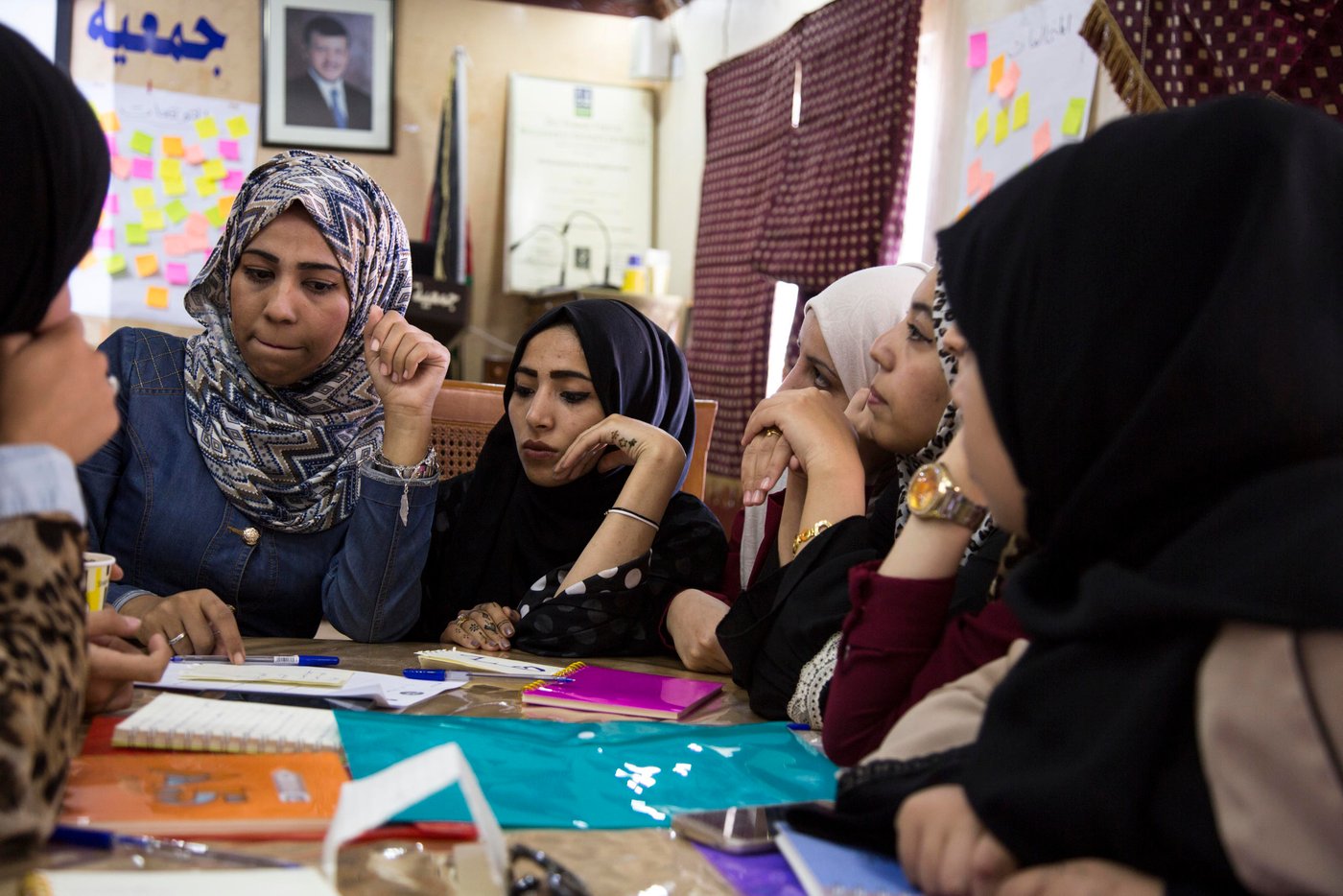Today, 12 August, marks International Youth Day, a day to celebrate young people and an opportunity to amplify their voices. Seventy-five per cent of Syrian refugees in Jordan are under the age of 30. Becoming displaced at this age can lead to a breakdown of protective social and cultural systems. It can also disrupt young people’s education and access to work, and limit their opportunities for personal and social development.
Jordan has one of the highest youth unemployment rates in the world, with approximately 40 per cent of young people unable find work. Among refugees the rate is even higher. Only 25 per cent of refugees aged 16 to 18 in Jordan are enrolled in secondary school and less than 3 per cent aged between 18 and 24 are engaged in vocational training or higher education.
Young people repeatedly report that their wellbeing is linked not only to their education and employment situation but also to having opportunities for personal, social and emotional growth.
Understanding how young refugees perceive their own wellbeing is a first step to understanding what it’s like to be a young refugee in Jordan.
Here’s what seven young refugees in Jordan want you to know about their wellbeing.
Wellbeing is about engagement and social connections
“In my community your wellbeing is connected to the wellbeing of those around you. To me, my wellbeing is about having all my relatives and those I know in good physical and mental health. My wellbeing is about feeling comfortable and happy where I am, going out with friends, getting to see the circus, going to the gym, and getting to participate in youth activities and training.” Fatima, 17, female.
It’s also about basic needs
“What wellbeing means changes when you became a refugee. Wellbeing now just means not having to rely on others to live. It means having shelter, getting an education, and maybe one day having a job.” Ali, 18, male.
Wellbeing is about social justice and equity
“A sense of justice and equity are essential to a young person’s wellbeing. It is important to be non-discriminatory, to accept others, to treat others well. But how do you practise these things, how do you learn them and believe them, when you are in a place where such things do not exist?
“This hurts one’s overall wellbeing. How are we expected to improve our wellbeing when we are constantly experiencing injustice in the world around us?” Mohammad, 28, male.
...and personal resilience
“My wellbeing is connected to feeling content and confident in what I do. As a young person, I feel at my best when I am able to pursue my goals and dreams and when I feel supported. I am working towards achieving my goal of becoming a nurse and I'm at my happiest when I’m able to access and attend trainings, sit for job interviews, and learn. I am also very happy when connecting with friends and eating my favourite food.” Hiba, 22, female.
Wellbeing is about legal status and identity
“My identity is tied to my status as a ‘refugee’. To be labelled as such is enough to break anyone’s sense of wellbeing. Until we are no longer refugees, we cannot really be well. We did not choose this identity; we were forced into it.” Bassam, 20, male.
…and it’s also about every aspect of life
“Wellbeing means being able to access our human rights and live with dignity, having freedom to express our opinions, equality, justice, the right to work and the ability to just move as we please.” Ihab, 19, male.
The Norwegian Refugee Council (NRC) works alongside young people to support them in their learning and progress along their chosen pathways. We can only do this effectively by listening, by understanding who they are and what is important to them, and by engaging them in decisions that affect them.
“When you’re a young refugee, wellbeing can be summed up as simply having the ability to dream.” Maha, 25, female.
*All quotes were shared by young Syrian refugees in Jordan in August 2020. Names have been changed.


